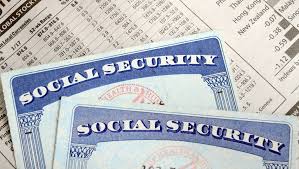If you are thinking about retiring, living abroad is becoming an affordable and desirable option. There are many expatriate communities of retired folks that are soaking up the sun. The last thing you want to worry about is earning money. One concern you may be having is, “Will I be able to collect Social Security if I’m abroad?” Though Social Security will not be able to support you for the rest of your life, it is a great form of supplemental income in addition to other pensions and retirement accounts. You have been paying into it your whole life, after all. If you are concerned about this, here is some good news.
If an American retiree meets certain requirements, they may be eligible to draw from Social Security. Most people who have thought about retirement know these policies, but it never hurts to recap. In order to receive U.S. Social Security benefits, a worker must have paid into Social Security for a total of 40 quarters, or 10 years. The usual age to begin collecting benefits is 65, if born before 1937, and gradually increases to 67 if born after 1960. It is possible however, to begin collecting between the ages of 62 and 70. If one decides to begin collecting early, benefits received are reduced by a fraction of a percent for each month before retirement age. If one chooses to retire later, the benefits are increased each month after the age of retirement.
Therefore, if you have have qualified to collect Social Security, and you live in a country in which you can receive the checks, you can continue to collect the payments. It’s up to you how you would like to receive the money. Your options include having the funds deposited directly into a U.S. bank and transferring them to an account overseas, as well as receiving a paper check by requesting them from the Treasury Department.
When living outside of the U.S., you will periodically be sent a questionnaire, determining if you are still eligible for payments. They want to make sure that you are using the money correctly, asking questions about your family situation and whether or not you are working or if any disabilities you may have had have gotten any better. This happens every one to two years, depending on your location, age, and whether or not you have a “representative payee.” Also, you must report certain changes to Social Security, such as change of address, work, marriage, etc. If one does not fill out the questionnaire, fails to report changes, or reports false information, the punishment can be severe.
You may also continue to work outside of the U.S., under certain conditions. As long as your earnings are not over the annual exempt amount, which changes every year, you can collect all benefits. To find out the current limit, contact Social Security at 1-800-772-1213, or visit their website, www.socialsecurity.gov.
If a person also worked in another country, they may also qualify to receive benefits from foreign government pensions. Some find they have not fully worked the 40 quarters to give into U.S. Social Security, but have worked abroad and contributed to a similar program. One issue retiring expats must take into consideration is understanding bilateral social security treaties. This applies to those who have worked abroad for a period of time. These treaties will indicate whether or not their time spent abroad contribute to the 40 quarters required to collect benefits.
The bilateral agreements that allow this are known as Totalization Agreements. The U.S. has such agreements with 25 countries, mostly in Western Europe, as of 2014. One reason the agreements were created was to eliminate dual Social Security taxation, the situation where a person has to pay social insurance tax for two countries. The other reason is to fill gaps in benefit protection for those who chose to divide their careers between the U.S. and abroad, making it possible to meet the 40 credits and making sure you receive the benefits you worked for. If a worker works enough in both countries to meet the requirements, each country will pay out its proportionate share to the retiree.
The sooner you can collect your benefits, the sooner you can be sipping Pina Coladas or hiking mountains, or whatever you choose to do with your retirement. Luckily, there are institutions in place that allow you to collect the Social Security you’ve been working your whole life to benefit from. For more information on collecting benefits abroad, visit: https://www.ssa.gov/international/payments.html.
Like Our Articles?
Then make sure to check out our Bookstore... we have titles packed full of premium offshore intel. Instant Download - Print off for your private library before the government demands we take these down!






